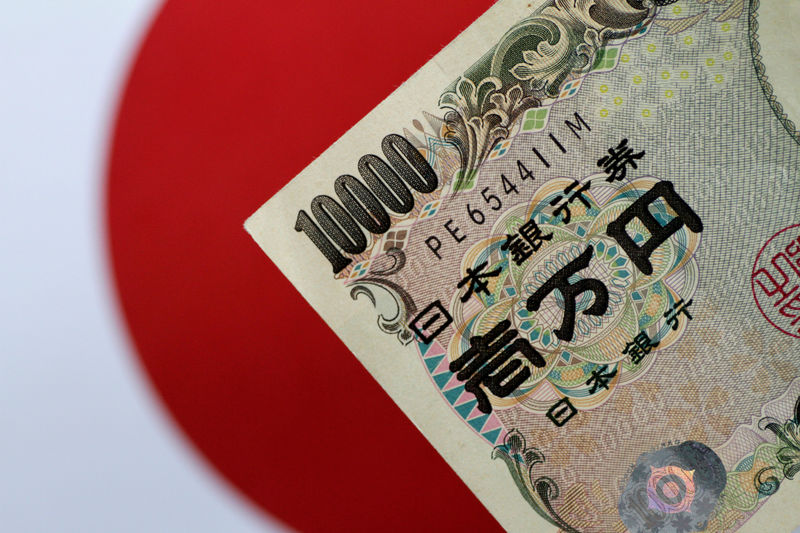By Saikat Chatterjee
LONDON (Reuters) - The Japanese yen gained half a percent against the dollar on Thursday as widening cracks in global stock markets prompted investors to load up on perceived safe-haven assets.
Though U.S. stocks jumped on Wednesday, sentiment was decidedly more cautious going into the U.S. trading session on Thursday with European equities (STOXX) falling one percent while U.S. stock futures (ESc1) slipped more than 1.5 percent.
With concerns about a fresh chapter of trade tensions between the United States and China unfolding, investors piled into low-yielding currencies such as the Japanese yen and the Swiss franc in thin year-end trading.
"On back of the global growth concerns and the sharp turnaround in markets today we have started to see the yen regain its place as the safe-haven of choice," said Lee Hardman, a currency strategist at MUFG in London.
The yen strengthened across the board, rising more than half a percent against the dollar
In a buying frenzy as spectacular as the recent rout, U.S. stocks soared with the Dow Jones Industrial Average <.DJIA> rocketing more than 1,000 points for the first time on Wednesday, sending global stocks higher. [MKTS/GLOB]
CHINA CONCERNS
But Thursday's session was dominated by concerns about falling Chinese industrial profits, which sent bond yields in Germany lower and commodity-linked currencies such as the Australian dollar
Reuters reported on Thursday that the Trump administration was considering an executive order in the new year to declare a national emergency that would bar U.S. companies from using Huawei
"The oil price bounce pushed commodity currencies higher across the board but the latest Huawei news is a bit of a dampener on sentiment in these thin markets," said Alvin Tan, a currency strategist at Societe Generale (PA:SOGN) in London.
The Australian dollar
Broadly, the dollar failed to capitalize on an eight-day high touched in the previous session on the back of firmer U.S. Treasury yields. The greenback was weaker against a basket of its rivals in early London trading.
The dollar index (DXY), a gauge of its value versus six major peers, slipped 0.2 percent to 96.82, after gaining 0.5 percent on Wednesday.
Volatile markets and concerns about a slowdown in the world's biggest economy have weighed on longer-dated U.S. bond yields and narrowed the interest rate differentials between the United States and other global bond markets.

Spreads between 10-year U.S. government debt (US10YT=RR) and corresponding Japanese debt (JP10YT=RR) have shrunk by more than 30 basis points to a four-month low of 2.75 percent.